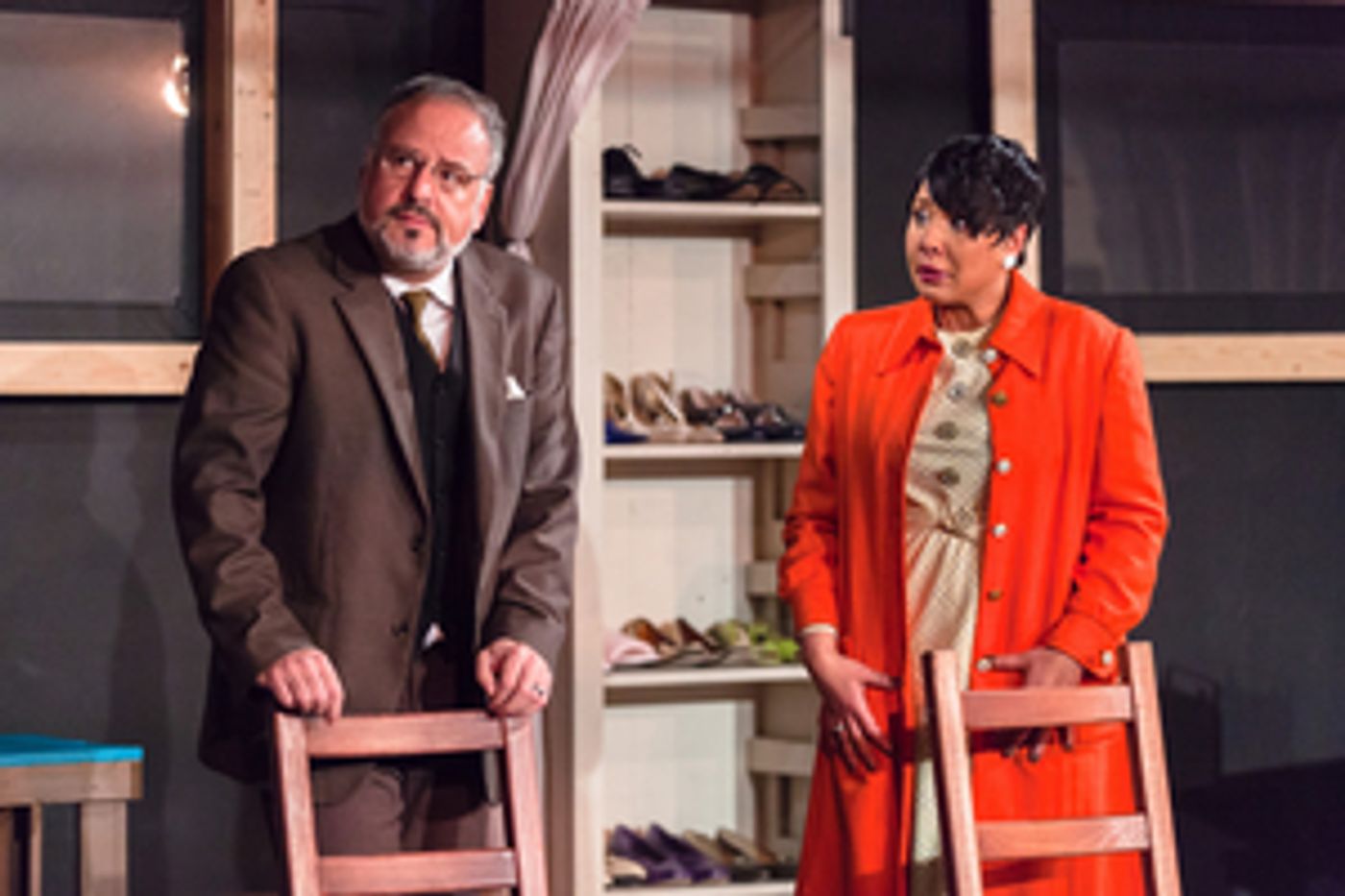Review: BLIND at Chapel Theatre Collective
 Breaking out of our self-imposed bubbles has become increasingly urgent as our society becomes more polarized. Local playwright Bonnie Ratner's new work, BLIND, now in its world premiere with Chapel Theatre Collective as part of the Fertile Ground Festival, provides a model for how to overcome our biases and fears and learn to open our eyes and our hearts.
Breaking out of our self-imposed bubbles has become increasingly urgent as our society becomes more polarized. Local playwright Bonnie Ratner's new work, BLIND, now in its world premiere with Chapel Theatre Collective as part of the Fertile Ground Festival, provides a model for how to overcome our biases and fears and learn to open our eyes and our hearts.
It all starts with opening our doors.
In the play (which is based on the true story of Ratner's father), Harold Stein, a Jewish man, owns a shoe store in a black neighborhood in New York. It's the 1960s during the civil rights movement and, like other Jewish stores in the area, Stein's has a "closed door policy," meaning that the door is locked all of the time, even during business hours. Black women are let in, and black men or boys accompanying black women, but never black men or boys on their own. The justification for this policy is that there have been several robberies in the area, but, of course, it's really all about bias and fear.
Then, one day, Harold refuses to let in a neighborhood teenager who just wants to buy a pair of shoes, and later his store is robbed. Harold gets a visit from another local mother, Millie, who helps him understand the role he played in bringing about the robbery. She also offers a solution to help him overcome his fear and perhaps even unlock his door.
The concept behind BLIND may be familiar (if you enjoyed the movie Green Book, this play is right up your alley), but the setting and execution are completely original. Perhaps because she has personal experience with this story, Ratner is able to take a broad view of the characters and examine the many different forces at play in their lives. As the two central characters, Harold and Millie get most of the stage time, and Jason Glick and Andrea White do an incredible job of playing the roles with a sensitivity that stops short of sentimentality. The play teaches a moral lesson, but the skillful writing and Glick's and White's performances keeps it from feeling too much like a moral lesson.
BLIND was first conceived as a short story and then as the script for a movie (the movie hasn't been made, yet, but fingers crossed), and there are some things that seem to be holdovers that don't work quite as well on the stage. Chiefly, the action moves around between a lot of different settings, making even the relatively simple set feel cumbersome due to the frequent opening and closing of curtains, moving around of tables, etc. There is also an overemphasis on subplots, which collectively explore different kinds of willful blindness, but at a length that ultimately doesn't serve the main story. A little tightening would help keep the play moving forward.
Overall, BLIND is a about how changing your point of view about the world can help change the world itself. This is a lesson we need now more than ever.
BLIND runs through February 9. Details and tickets here.
Photo credit: Michael Lindberg
Reader Reviews

Videos

